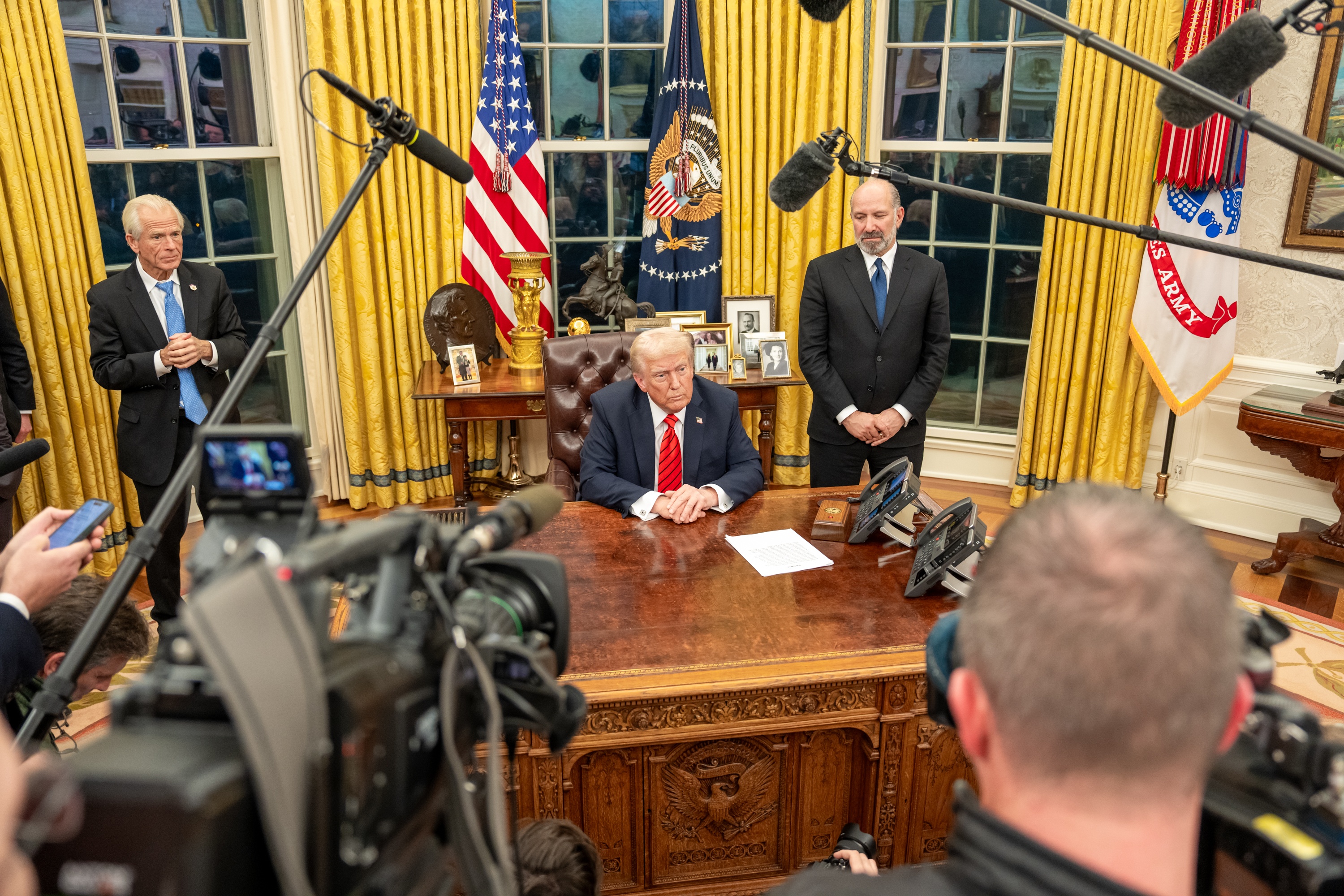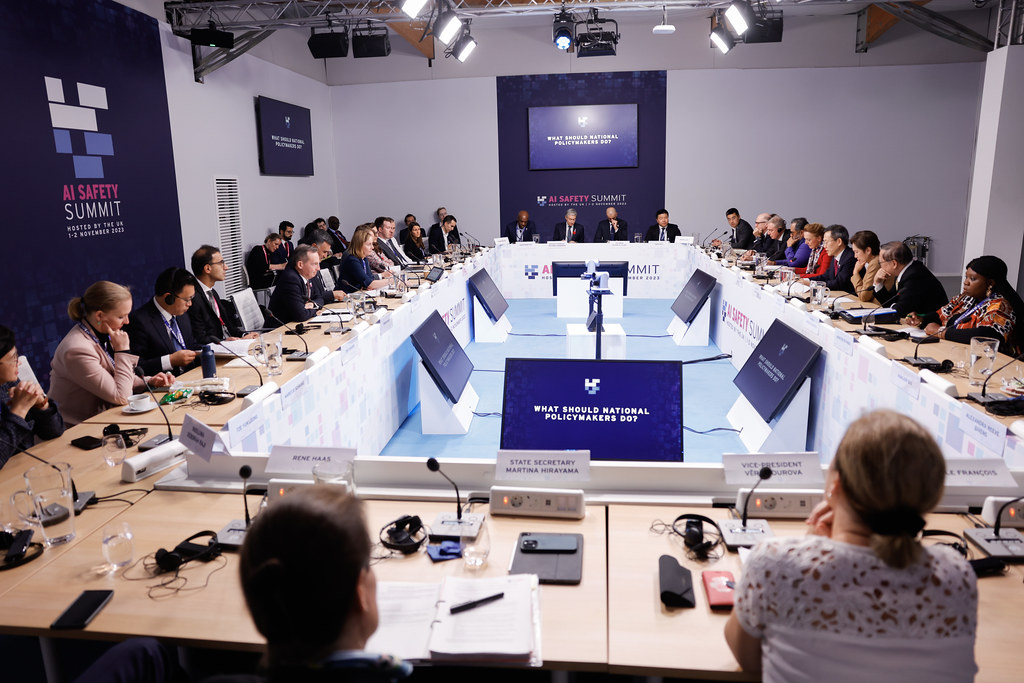Today's Headlines and Commentary
Secretary of State Rex Tillerson said the U.S. was ready to talk to North Korea without any preconditions, CNN reported. The White House said the U.S. stance on the matter had not changed, but analysts said the statement signals a more open negotiating stance.
Published by The Lawfare Institute
in Cooperation With

Secretary of State Rex Tillerson said the U.S. was ready to talk to North Korea without any preconditions, CNN reported. The White House said the U.S. stance on the matter had not changed, but analysts said the statement signals a more open negotiating stance. On Wednesday, South Korea’s president, Moon Jae-In, traveled to Beijing in a bid to restore stronger diplomatic ties with China and craft a strategy for dealing with North Korea, the Wall Street Journal reported. Moon will make his first official visit to China as Beijing seeks support for its proposal for direct talks between Washington and Pyongyang.
Palestinian President Mahmoud Abbas said the U.S. should not have any role in brokering the Israeli-Palestinian peace process, the AP reported. Abbas said the U.N. should replace the U.S. as the mediator for the eventual international accord after President Donald Trump sparked outrage across the Middle East by recognizing Jerusalem as Israel’s capital. Rex Tillerson stated on Tuesday that the American embassy will likely not move to Jerusalem until 2020, delaying a controversial that could exacerbate problems with the peace process, the New York Times reported.
Congressional lawmakers will let a deadline to re-impose sanctions under the Iran nuclear deal pass, leaving the deal in place, Reuters reported. Congress has not introduced any measures to bring back sanctions on Iran in the 60-day window that President Trump triggered by refusing to recertify Iran’s compliance with the deal in October. Trump will face a deadline in mid-January to decide whether to continue waiving energy sanctions on Iran.
The Philippine Congress extended martial law on the southern island of Mindanao for another year, the Times reported. President Rodrigo Duterte requested the extension, saying it was necessary to continue efforts to fight Islamic State militants on the island. Opposition lawmakers said the extension undermined the Philippine constitution by giving the military wide powers to control travel and to carry out warrantless arrests.
President Trump signed the fiscal year 2018 National Defense Authorization Act (NDAA), authorizing nearly $700 billion of military spending, the Military Times reported. The Pentagon now must wait for lawmakers to pass a fiscal year 2018 appropriations bill to enable it to spend the authorized funds. Congress faces a Dec. 22 deadline to pass a spending measure and avert a government shutdown.
The U.S. has not taken any action to transfer five prisoners from the Guantanamo Bay military detention facility who the government said it would release last year, the AP reported. The U.S. has not released any prisoners from Guantanamo since Trump took office despite clearances for the five men from a security-review task force during the Obama administration. The U.N. special rapporteur on torture said a prisoner at Guantanamo is still being tortured, according to Reuters. Nils Melzer said Ammar al-Baluchi, a detainee being held in solitary confinement, was still subject to sleep deprivation tactics and inadequate medical care. U.S. officials did not comment.
The head of the U.S. Agency for International Development said that Saudi Arabia had not eased its blockade on Yemen’s ports, prolonging shortages of food and medical supplies to civilian populations at risk of starvation, Reuters reported. Mark Green said the Saudi-led coalition fighting Houthi rebels had not allowed U.S. food aid to address the “humanitarian catastrophe” created by the country’s civil war.
ICYMI: Yesterday on Lawfare
Harry Larson detailed recent attempts by federal courts to constrain the government’s powers to criminally prosecute deportable immigrants.
David Houck summarized the Nov. 17 military commission hearings in U.S. v. al-Nashiri.
Benjamin Wittes asked for reader input on a potential Lawfare app.
Amanda Tyler explained how the history of habeas corpus applies to the unnamed U.S. citizen detainee in ACLU v. Mattis.
Wittes conceded that he is now alarmed by the lack of progress in ACLU v. Mattis.
Matthew Kahn posted the White House’s Dec. 11 war powers report.
Mieke Eoyang, Ben Freeman and Wittes analyzed public confidence in the Mueller investigation and the other Russia investigations.
Peter Margulies discussed the travel ban challengers’ new strategies in the Dec. 8 oral arguments at the Fourth Circuit.
In the second part of a series on obstruction of justice and the presidency, Josh Blackman argued that the scope of “high crimes and misdemeanors” is limited by the Constitution.
Vanessa Sauter posted the president’s FY 2018 NDAA signing statement.
Robert Chesney and Steve Vladeck shared the National Security Law Podcast, discussing Akayad Ullah, ACLU v. Mattis and the AUMF.
Matthew Kahn posted the criminal complaint against attempted New York suicide bomber Akayad Ullah.
Sauter posted the latest Lawfare Podcast featuring a Georgetown freshman on his harrowing experience growing up in Syria.
Email the Roundup Team noteworthy law and security-related articles to include, and follow us on Twitter and Facebook for additional commentary on these issues. Sign up to receive Lawfare in your inbox. Visit our Events Calendar to learn about upcoming national security events, and check out relevant job openings on our Job Board.





